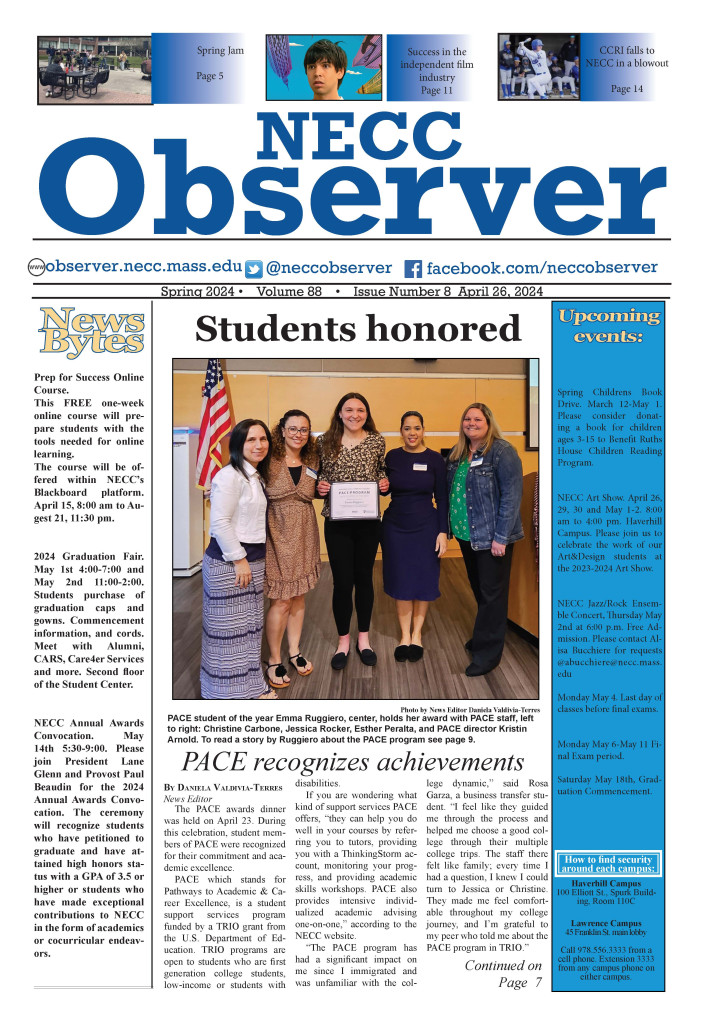On Dec. 10, 2020, the new coordinator of the journalism and communciations program at Northern Essex Community College, Kim Lyng hosted a journalism and communications ‘conversation’ for all students and staff members to attend if they pleased.
Lyng began the presentation by talking about her introduction to writing as a child.
Lyng believes her love for writing stems back to her childhood, which she connected by saying she “really (loved) to write from a really young age, and I love to write everything from short stories to poetry.”
She goes on to talk about how she believed she would go into the journalism field froma young age because of this.
Already knowing from a young age that she wanted to pursue writing, Lyng found herselfat a liberal arts college. Once she had graduated from her liberal arts college, she “worked at a newsroom [for] a newspaper where everybody in the newsroom… had been in liberal arts.”
Eventually, she would end up working for the Cambridge Chronicle, which is a section of the Somerville Journal. From here on, she found herself working for newspapers and other journalism and communication programs. Lyng went on to have varied experiences in newsrooms, including working in TV news.
One of the journalism stories she shared, revolves around a nurse who broke her leg walking to her car, and the CEO of the hospital was very rude. When she had tried to ask about the situation, none of the workers wanted to go on record, so she instead “started getting [a lot of] anonymous sources,” since nobody wanted to openly speak poorly about the CEO of the hospital. As a journalist, Lyng still had to finish the story, but had to piece together all of the anonymous tips
Reluctan on the record sources is not uncommon in journalism, as journalists are meant to always tell the truth, which may not always align with what certain people want to hear.
Lyng went on to tell more about her experience in journalism and communications, and also answered some student questions, which delved deeper into her career and life as ajournalist. Some of these questions revolved around other careers in journalism, such as sport journalism. When talking about sports journalism Lyng said “there’s lots of different opportunities in local sports teams to kind of start there and then say, Okay. From there, I get together like a reel of me, you know, doing announcements you know.” This can lead to “to getting into a different job somewhere, you know, ESPN.”
She answered a few more questions like this, in order to make sure the students attending the meeting got as much information about the journalism fieldas possible
.Lyng decided to end the conversation by reminding everyone on the call that now is the best time to start writing. There is not a lot to go outside and do, so with time all this homea nyone interested in going into the journalism field should start working on developing stories and testing out different types of journalism. The conversation lasted around 83 minutes, and found many people within the call to be active. The meeting was held as a conversation rather than a presentation, which is why personal journalism questions were encouraged, asked, and answered. Lastly, Kim encourages anyone with questions about journalism to reach out to her via email at klyng@necc.mass.edu.

